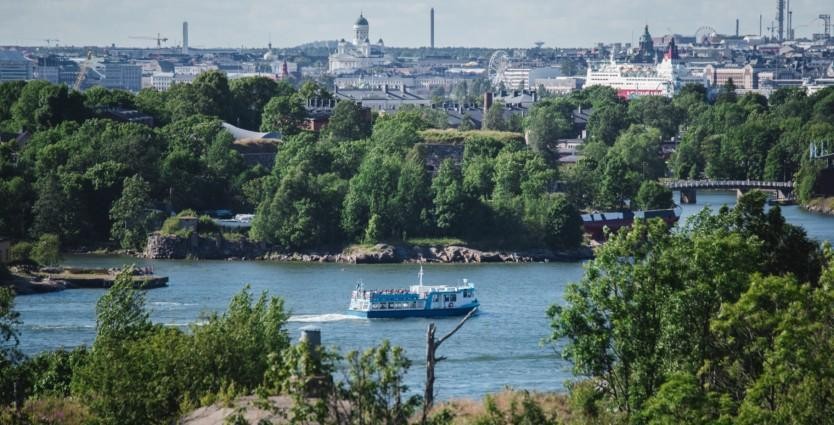 In English
In English Helsinki’s valuable archipelago in focus at HELSUS Co-Creation Lab
The HELSUS Co-Creation Lab culminated on final gala event, where master’s students doing their master’s thesis on topics provided by public and private sector partners, presented their results of the co-creation process. Students taking part came from various backgrounds from sociology to data-science and biology. Partners in Co-Creation Lab 2021 were City of Helsinki, HELEN, Kemira, UPM, and the Finnish Ministry of the Environment.
City of Helsinki took part in this year’s Co-Creation lab as a partner with the following challenge for students:
How to accomplish city planning, construction and maintenance and use of environmental data to prevent biodiversity and ecosystem service loss in urban aquatic environments?
Team assembled to address this challenge consisted of students, lab-teachers and representatives of city of Helsinki. At the final lab event 23rd September, the students presented their thesis projects and solutions within.
Solutions offered by the students provided four different, but mutually complimentary takes on urban aquatic biodiversity. Student works highlighted the need for sophisticated planning practices, where there is sensitivity for competing values as well as for the needs and desires of the users of maritime environments.
There is currently great interest for the city of Helsinki in development of their coastal areas and the islands in the archipelago. The student works showed that islands and coastlines of Helsinki are also very important for city residents. For example, low profile services, such as cafeterias and public spaces with access to pure nature are valued greatly on the islands. This finding is important to take to the right hands and ears, since the issue of island-usage is very topical now.
The work of the students was valued by the city, since there are significant gaps in knowledge about the efficient and preferred uses of marine environments. Methodological plurality displayed in the work of the students was considered an exemplary way of addressing urban challenges. The work of the students was especially applauded for the complimentary nature of the studies compiled: different methods and research approaches can feed into each other and together provide a more nuanced and accurate view of the objects of study. Research cooperation and multidisciplinary approaches continue to be called for in the policymaking and development of the aquatic environment of Helsinki.
![]()
The HELSUS Co-Creation Lab is a cooperative, scheduled and facilitated process for master’s students doing their master’s thesis, during which the students take on sustainability challenges presented by partners and produce their master’s thesis on a subject developed during the process.
Teksti: Eetu Niemi
Kuva: Julia Kivelä / Visit Finland